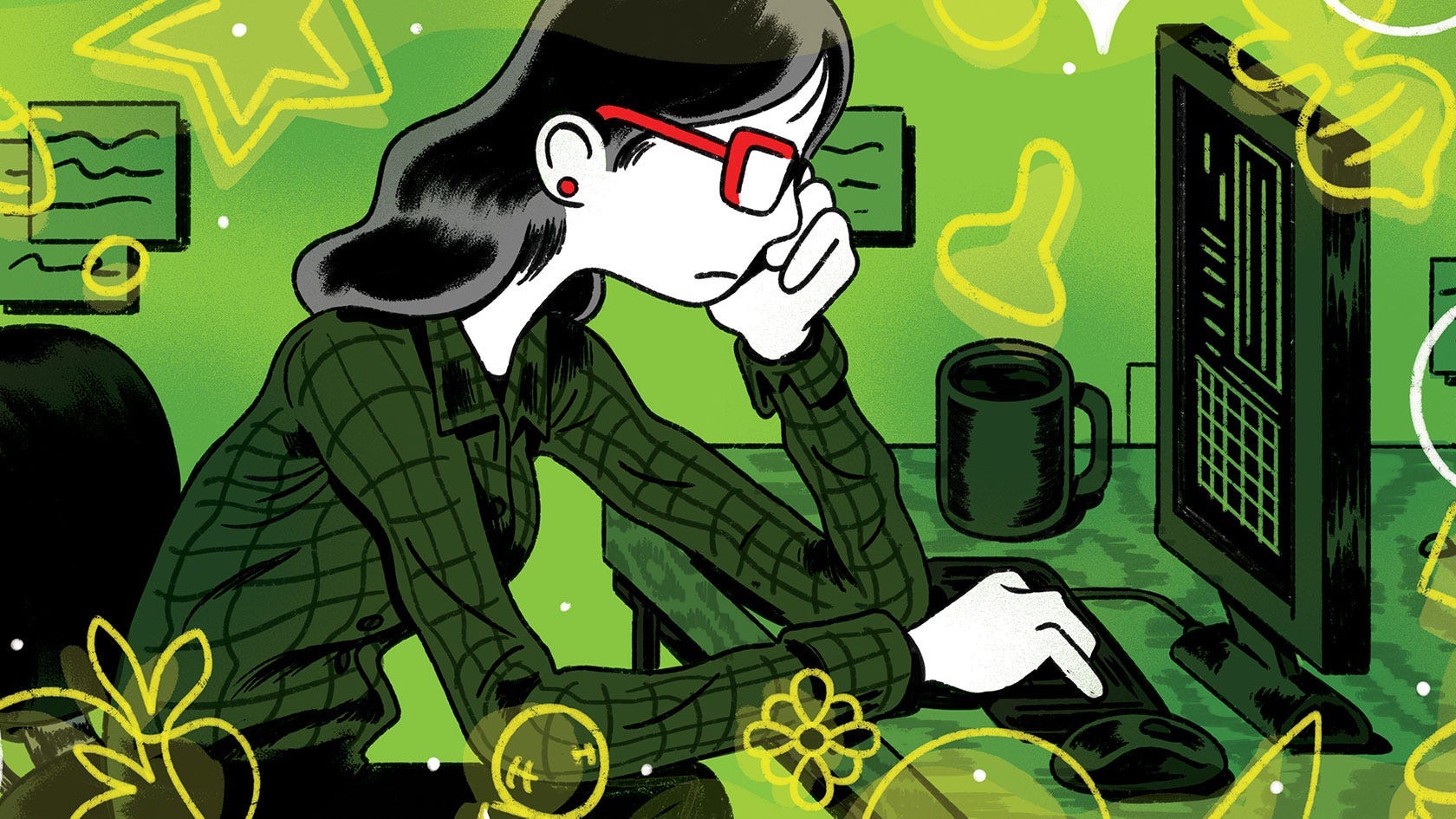✏️🛠️ How To Address and Overcome “Writer’s Block” (Hint: We Think It's Actually a Myth)
In this craft piece, writer and performer Caroline Rothstein takes “writer’s block” to task, exploring how accepting it as part of our process helps us write through the moments when we feel stuck.
I think “writer’s block” is a myth. A block implies stagnancy. A barrier. An adversary. A wall. But I think what’s really happening when we feel this so-called block is that we need to pause, regroup and take a beat. And I think feeling blocked, or getting stuck as I like to often say, can be a necessary — even essential, and hopefully productive — stage in the writing process.
If I’m not ready to write, I’m not ready to write. If I need to empty my inbox in order to write, or watch multiple episodes of Love Is Blind: UK (like I did to push through the second draft of this very piece), or have a snack or take a walk, then that’s the writing. Or if I need to question my entire existence before I churn out a couple thousand words, that’s the writing process too.
I think the key to addressing and overcoming writer’s block, or whatever we want to call it, is cultivating and nourishing our writing process. Blockage can show up at any point. When we’re getting started. When we’re midway through a draft. When we’re riding the edge of a deadline. When we’re hours into something that was otherwise flowing swimmingly and then poof: We’re stuck treading water and can’t make it to the other side of the pool.
When the writer’s block stage is met with resistance, it may very well become true to its name, blocking us from our organic flow. But when we meet it with preparation (and even expect it to arrive at some point), we can navigate it with ease. That way, anytime we’re “stuck,” we know that we innately have the tools to make it through. Below, some of those very tools and tips to help you hone your creative craft.
TIP ONE: Identify What’s Going On
Because we’re in the literal business of working with words here, I think it behooves us to liberate ourselves from the “block” phraseology. That word itself can literally feel like a limitation and become a self-fulfilling prophecy. A little rebranding can go a long emotional and practical way.
As Jeanann Verlee, author of prey, Said the Manic to the Muse and Racing Hummingbirds says, “Writer’s block is a psychological state that all creatives face and someone, somewhere along the course of history, had to give it a name.”
Regardless of what we call it (playwright Jon Adam Ross calls it an “illumination block;” filmmaker, actor and writer Carmen LoBue calls it “akin to a spirit flu;” a character in Katherine Center’s romance novel The Rom-Commer calls it the “yips”), the first step is identifying why we feel blocked or stuck. Is the subject matter challenging, have we momentarily lost morale (in ourselves, the work, the process at large), or is it, perhaps, hard to tap into how we’re feeling about multi-layered content when there’s a literal movie being filmed on our block (I live in a place where this can be a thing!)?
The next step is figuring out what to do about it. “A block is fixed and solid, something you’d move over or around,” says Alizah Salario, deputy managing editor at Stacker Media. “But to get unstuck as a writer, the only way out is through.”
Keep reading with a 7-day free trial
Subscribe to Narratively to keep reading this post and get 7 days of free access to the full post archives.





